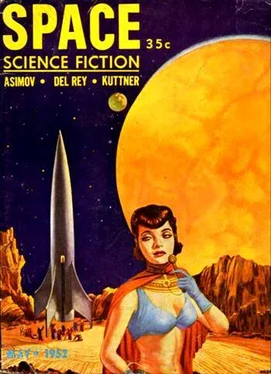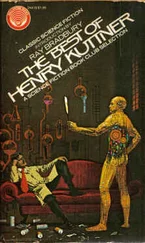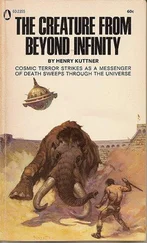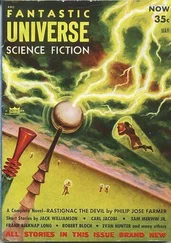Henry Kuttner - The Ego Machine
Здесь есть возможность читать онлайн «Henry Kuttner - The Ego Machine» весь текст электронной книги совершенно бесплатно (целиком полную версию без сокращений). В некоторых случаях можно слушать аудио, скачать через торрент в формате fb2 и присутствует краткое содержание. Жанр: Фантастика и фэнтези, Юмористическая фантастика, на английском языке. Описание произведения, (предисловие) а так же отзывы посетителей доступны на портале библиотеки ЛибКат.
- Название:The Ego Machine
- Автор:
- Жанр:
- Год:неизвестен
- ISBN:нет данных
- Рейтинг книги:3 / 5. Голосов: 1
-
Избранное:Добавить в избранное
- Отзывы:
-
Ваша оценка:
- 60
- 1
- 2
- 3
- 4
- 5
The Ego Machine: краткое содержание, описание и аннотация
Предлагаем к чтению аннотацию, описание, краткое содержание или предисловие (зависит от того, что написал сам автор книги «The Ego Machine»). Если вы не нашли необходимую информацию о книге — напишите в комментариях, мы постараемся отыскать её.
The Ego Machine — читать онлайн бесплатно полную книгу (весь текст) целиком
Ниже представлен текст книги, разбитый по страницам. Система сохранения места последней прочитанной страницы, позволяет с удобством читать онлайн бесплатно книгу «The Ego Machine», без необходимости каждый раз заново искать на чём Вы остановились. Поставьте закладку, и сможете в любой момент перейти на страницу, на которой закончили чтение.
Интервал:
Закладка:
Moving quite slowly, like a man under water, Martin lifted his glass and drank whiskey. Then, cautiously, he looked up at the robot again.
" F(t) —" he said, paused, shuddered, and drank again. That did it. "I'm drunk," he said with an air of shaken relief. "That must be it. I was almost beginning to believe—"
"Oh, nobody believes I'm a robot at first," the robot said. "You'll notice I showed up in a movie lot, where I wouldn't arouse suspicion. I'll appear to Ivan Vasilovich in an alchemist's lab, and he'll jump to the conclusive I'm an automaton. Which, of course, I am . Then there's a Uighur on my list—I'll appear to him in a shaman's hut and he'll assume I'm a devil. A matter of ecologicologic."
"Then you're a devil?" Martin inquired, seizing on the only plausible solution.
"No, no, no. I'm a robot. Don't you understand anything?"
"I don't even know who I am, now," Martin said. "For all I know, I'm a faun and you're a human child. I don't think this Scotch is doing me as much good as I'd—"
"Your name is Nicholas Martin," the robot said patiently. "And mine is ENIAC."
"Eniac?"
"ENIAC," the robot corrected, capitalizing. "ENIAC Gamma the Ninety-Third."
So saying, he unslung a sack from his metallic shoulder and began to rummage out length upon length of what looked like red silk ribbon with a curious metallic lustre. After approximately a quarter-mile of it had appeared, a crystal football helmet emerged attached to its end. A gleaming red-green stone was set on each side of the helmet.
"Just over the temporal lobes, you see," the robot explained, indicating the jewels. "Now you just set it on your head, like this—"
"Oh no I don't," Martin said, withdrawing his head with the utmost rapidity. "Neither do you, my friend. What's the idea? I don't like the looks of that gimmick. I particularly don't like those two red garnets on the sides. They look like eyes."
"Those are artificial eclogite," the robot assured him. "They simply have a high dielectric constant. It's merely a matter of altering the normal thresholds of the neuron memory-circuits. All thinking is based on memory, you know. The strength of your associations—the emotional indices of your memories—channel your actions and decisions, and the ecologizer simply changes the voltage of your brain so the thresholds are altered."
"Is that all it does?" Martin asked suspiciously.
"Well, now," the robot said with a slight air of evasion. "I didn't intend to mention it, but since you ask—it also imposes the master-matrix of your character type. But since that's the prototype of your character in the first place, it will simply enable you to make the most of your potential ability, hereditary and acquired. It will make you react to your environment in the way that best assures your survival."
"Not me, it won't," Martin said firmly. "Because you aren't going to put that thing on my head."
The robot sketched a puzzled frown. "Oh," he said after a pause. "I haven't explained yet, have I? It's very simple. Would you be willing to take part in a valuable socio-cultural experiment for the benefit of all mankind?"
"No," Martin said.
"But you don't know what it is yet," the robot said plaintively. "You'll be the only one to refuse, after I've explained everything thoroughly. By the way, can you understand me all right?"
Martin laughed hollowly. "Natch," he said.
"Good," the robot said, relieved. "That may be one trouble with my memory. I had to record so many languages before I could temporalize. Sanskrit's very simple, but medieval Russian's confusing, and as for Uighur—however! The purpose of this experiment is to promote the most successful pro-survival relationship between man and his environment. Instant adaptation is what we're aiming at, and we hope to get it by minimizing the differential between individual and environment. In other words, the right reaction at the right time. Understand?"
"Of course not," Martin said. "What nonsense you talk."
"There are," the robot said rather wearily, "only a limited number of character matrices possible, depending first on the arrangement of the genes within the chromosomes, and later upon environmental additions. Since environments tend to repeat—like societies, you know—an organizational pattern isn't hard to lay out, along the Kaldekooz time-scale. You follow me so far?"
"By the Kaldekooz time-scale, yes," Martin said.
"I was always lucid," the robot remarked a little vainly, nourishing a swirl of red ribbon.
"Keep that thing away from me," Martin complained. "Drunk I may be, but I have no intention of sticking my neck out that far."
"Of course you'll do it," the robot said firmly. "Nobody's ever refused yet. And don't bicker with me or you'll get me confused and I'll have to take another jolt of voltage. Then there's no telling how confused I'll be. My memory gives me enough trouble when I temporalize. Time-travel always raises the synaptic delay threshold, but the trouble is it's so variable. That's why I got you mixed up with Ivan at first. But I don't visit him till after I've seen you—I'm running the test chronologically, and nineteen-fifty-two comes before fifteen-seventy, of course."
"It doesn't," Martin said, tilting the glass to his lips. "Not even in Hollywood does nineteen-fifty-two come before fifteen-seventy."
"I'm using the Kaldekooz time-scale," the robot explained. "But really only for convenience. Now do you want the ideal ecological differential or don't you? Because—" Here he flourished the red ribbon again, peered into the helmet, looked narrowly at Martin, and shook his head.
"I'm sorry," the robot said. "I'm afraid this won't work. Your head's too small. Not enough brain-room, I suppose. This helmet's for an eight and a half head, and yours is much too—"
"My head is eight and a half," Martin protested with dignity.
"Can't be," the robot said cunningly. "If it were, the helmet would fit, and it doesn't. Too big."
"It does fit," Martin said.
"That's the trouble with arguing with pre-robot species," ENIAC said, as to himself. "Low, brutish, unreasoning. No wonder, when their heads are so small. Now Mr. Martin—" He spoke as though to a small, stupid, stubborn child. "Try to understand. This helmet's size eight and a half. Your head is unfortunately so very small that the helmet wouldn't fit—"
"Blast it!" cried the infuriated Martin, caution quite lost between Scotch and annoyance. "It does fit! Look here!" Recklessly he snatched the helmet and clapped it firmly on his head. "It fits perfectly!"
"I erred," the robot acknowledged, with such a gleam in his eye that Martin, suddenly conscious of his rashness, jerked the helmet from his head and dropped it on the desk. ENIAC quietly picked it up and put it back into his sack, stuffing the red ribbon in after it with rapid motions. Martin watched, baffled, until ENIAC had finished, gathered together the mouth of the sack, swung it on his shoulder again, and turned toward the door.
"Good-bye," the robot said. "And thank you."
"For what?" Martin demanded.
"For your cooperation," the robot said.
"I won't cooperate," Martin told him flatly. "It's no use. Whatever fool treatment it is you're selling, I'm not going to—"
"Oh, you've already had the ecology treatment," ENIAC replied blandly. "I'll be back tonight to renew the charge. It lasts only twelve hours."
" What! "
ENIAC moved his forefingers outward from the corners of his mouth, sketching a polite smile. Then he stepped through the door and closed it behind him.
Martin made a faint squealing sound, like a stuck but gagged pig.
Something was happening inside his head.
II
Интервал:
Закладка:
Похожие книги на «The Ego Machine»
Представляем Вашему вниманию похожие книги на «The Ego Machine» списком для выбора. Мы отобрали схожую по названию и смыслу литературу в надежде предоставить читателям больше вариантов отыскать новые, интересные, ещё непрочитанные произведения.
Обсуждение, отзывы о книге «The Ego Machine» и просто собственные мнения читателей. Оставьте ваши комментарии, напишите, что Вы думаете о произведении, его смысле или главных героях. Укажите что конкретно понравилось, а что нет, и почему Вы так считаете.







